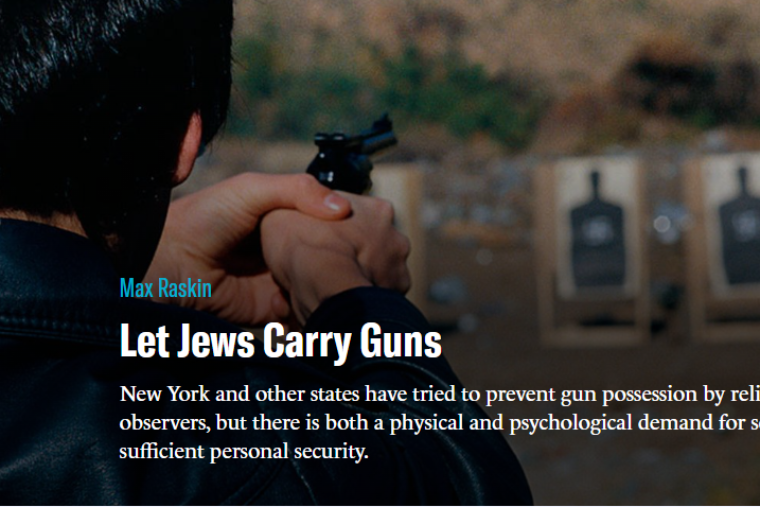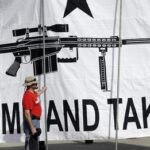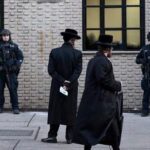New York and other states have tried to prevent gun possession by religious observers, but there is both a physical and psychological demand for self-sufficient personal security.
It has become clear to many Jews after October 7 that traditional institutions cannot guarantee their physical safety. A huge spike in demand for private gun ownership among Jews, both in the United States and Israel, has resulted. But New York and other states have tried to prevent gun possession by religious observers. The policy argument against singling out religious institutions to turn them into gun-free zones is straightforward: unilateral disarmament creates dangerous incentives.
In 2022, the U.S. Supreme Court struck down New York’s restrictive scheme for issuing licenses to carry pistols outside the home. In response, the state passed patently unconstitutional legislation that attacked First and Second Amendment rights at the same time. The Concealed Carry Improvement Act made it a crime to carry a firearm in certain “sensitive locations”—notably, including “any place of worship,” regardless of worshippers’ preferences. Given its constitutional defects, the law is making its way to the Supreme Court. But it is nonetheless important to understand why the law is dangerous.
Declaring an area gun-free is not some magical gesture that will prevent fatalities from occurring in that place. Criminals who want to shoot up religious gatherings will not be deterred by marginal penalties like violating “sensitive locations” regulations. In their writings, many mass shooters mention having considered the presence of armed people as they chose their targets. It is law-abiding citizens who comply with such regulations; they’re also the ones willing to protect fellow congregants.
By Max Raskin



